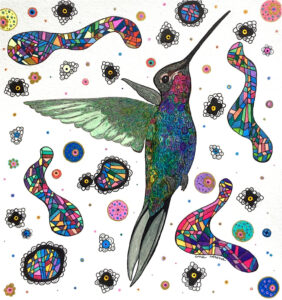Por Agustina Fazio, Uruguay
(This note was written originally in Spanish and then translated by me to be disseminated among partners, based on my personal experience and my work in iiDi Foundation)
Years ago, I was a disabled child. I was very little and I don’t quite remember, I know because I was told, and because it is part of my story. But I’m not disabled anymore, and I don’t remember having any barriers in life because of that early illness. Thanks to the doctors, to God, to my parents and (I’ve been told) to my willpower though I was less than 2 years old, I reverted my paralysis. And it doesn’t show, no one would know it if I didn’t tell the story. I am now “across the counter”. Sometimes I even forget about it. But, as it is part of my early years, I am especially sensitive to the subject. And once in a while I live or see things that bring it back. My first reaction is to feel thankful, and responsible – responsible of doing something so that those that were not as lucky as me can live in a better and more inclusive world.
Accessibility. I think it is quite selfish to think the accessibility as something extra, an improvement on something that was just right before. Things, objects, services, shoud be accessible when they are created – not be done, and be adapted later. It is not a favour we are doing when adapting objects to people with disabilities. We are not “better persons” if we think about accessibility. People with disabilities have the right to do the same things people without disabilities do. It would be beautiful if people with disabilities could choose their favorite leisure activities (sports, recreational, cultural activities) without limitations. That if they choose not to go to the cinema, it is because they don’t want to, not because they can’t get in with a wheelchair, or because they won’t understand or they won’t listen. Accessibility should go first, to enable their freewill – only then can we talk about “empowerment and equality”.
Why is disability hidden? Because it cannot be shown, we lack the necessary conditions. People who use wheelchairs don’t go out often, simply because the streets are not prepared for them. Deaf people don’t go to many cultural events, because there are no sign language interpreters there to help them. If the events were accessible from the start, we would see many more people with disabilities attending. Why can I, without disabilities, choose between 10 different entertainment options, and people with disabilities only have one or two? Why do they have to adapt to the world, instead of the world adapting to them? Why don’t we all learn sign language at school, but deaf people need to learn Spanish, English, or other language to communicate?
Humility. Much humility is needed to interact with people with disabilities. I believe they are admirable. If one listens carefully and without “pity”, there is plenty of things we can learn from their lives. Although we’re evidently different, we’re equal. We are not saviors, nor better than others when we work to promote human rights. When listening, we learn from them, and we can help them in a better way. The key is to interact with hope and happiness.
From “across the counter”, I come close again to the world of disability, feeling privileged and motivated to make the world an inclusive place for all of us.



